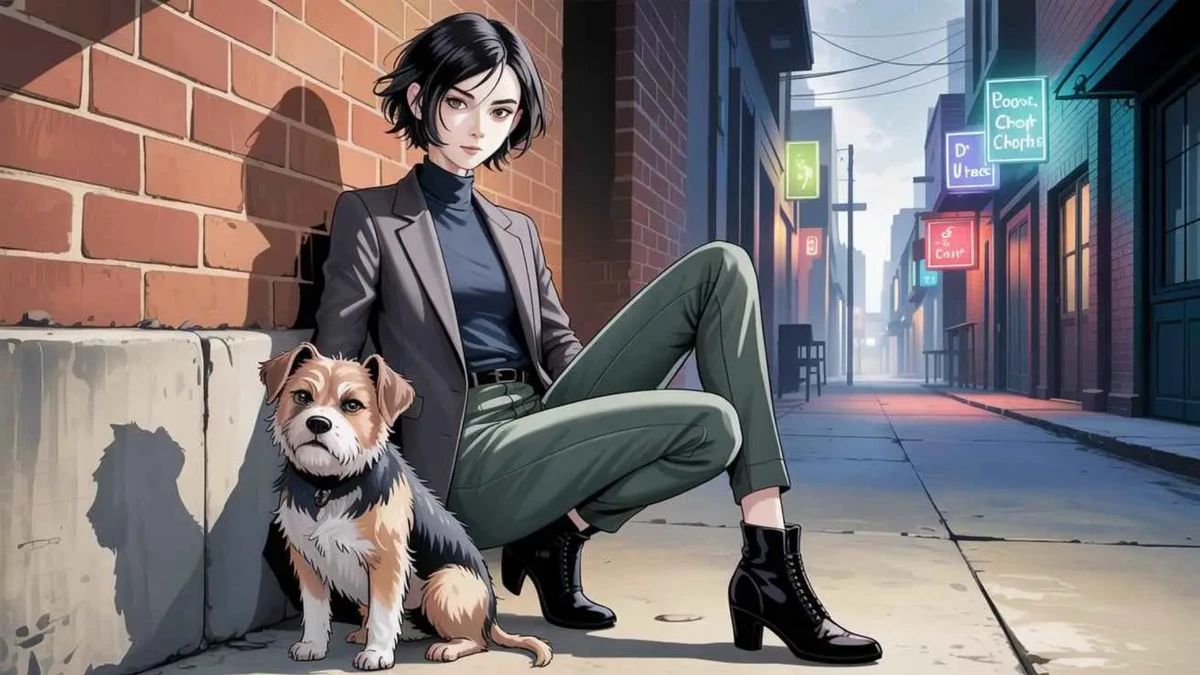For millions of moviegoers, Channing Tatum movies evoke an immediate mix of charm, physicality, levity, and unexpected emotional intelligence. Within the first few seconds of hearing his name, the search intent behind the topic becomes clear: audiences want to understand how Tatum went from a breakout dancer-turned-actor to a defining figure of 21st-century Hollywood cinema. They want to know how his films—ranging from comedic blockbusters to somber dramas—reflect shifting entertainment values, cultural tastes, and industry economics. This article unpacks that journey with context, clarity, and depth.
Tatum’s screen presence has long been associated with athleticism and charisma, yet the fuller narrative is more intricate. His filmography reveals an actor who defied typecasting and consistently pursued roles that reflect his personal sensibilities—humor, authenticity, vulnerability, and an unwavering work ethic. From Step Up to Foxcatcher, from 21 Jump Street to Magic Mike and its sprawling cultural aftermath, Tatum built a career that mirrors Hollywood’s own transitions: from mid-budget dramas to franchise-driven economies, from physical stardom to the rise of actor-producer powerhouses shaping their own storytelling. – Channing Tatum movies.
In exploring these themes, this investigation draws upon firsthand reflections, expert commentary, and cinematic analysis. It traces how Tatum’s movies contributed to broader conversations about masculinity, performance, creativity, and the economics of modern filmmaking. And it examines why, in an industry increasingly defined by algorithmic streaming models and risk-averse studio decision-making, Channing Tatum remains one of the rare actors able to move fluidly between genres—and still draw audiences with his unmistakable blend of humor, humanity, and heart. – Channing Tatum movies.
Interview: “The Layers Behind the Laughs”
Date: January 28, 2025
Time: 6:17 p.m.
Location: Los Angeles, California — Sunset Tower Hotel, Terrace Suite.
Warm amber lamps cast soft light against vintage wood paneling. Outside, the fading pink horizon of West Hollywood settles into evening. The room smells faintly of cedar and citrus polish. A stack of screenplays sits on the table beside us, dog-eared and bookmarked.
Across from me is Dr. Helena Ross, a professor of Contemporary Film Studies at UCLA, known for her work on physical performance in cinema and the cultural evolution of male stardom. She carries a quiet, analytical presence—silver glasses perched low, a fountain pen in hand—ready to translate decades of cinematic context into a grounded, human conversation.
Q&A Dialogue
Interviewer: When you look at Channing Tatum’s movie career, what stands out first?
Ross: (She leans back, crossing her legs thoughtfully.) It’s his physical honesty. Tatum doesn’t perform masculinity the way Hollywood once demanded. His characters have tenderness. Even in comedies, he plays vulnerability. That’s rare.
Interviewer: You’re describing something deeper than charm.
Ross: (A small smile.) Exactly. Physicality is his entry point—dancing, fighting, comedy—but emotional intelligence is the engine. Look at Magic Mike. Beneath the spectacle is a meditation on class, labor, and identity. Tatum grounds it in lived experience.
Interviewer: How does he navigate genre?
Ross: (She taps her pen lightly.) Seamlessly. Few actors move from a dramatic psychological film like Foxcatcher to self-aware comedy like 21 Jump Street. That range reflects his curiosity, not ambition alone.
Interviewer: Does his background shape his film choices?
Ross: Absolutely. (She leans forward now.) Tatum didn’t come from privilege. His movies—especially his producing work—echo working-class realism. Even when the films are funny or wild, they’re rooted in economic reality.
Interviewer: Where does his influence sit today?
Ross: (A contemplative pause.) He’s part of a generation redefining male leads—not invincible, not emotionless. His movies show men as funny, flawed, resilient, and tender. That shift matters more than people realize.
Post-Interview Reflection
As the conversation ends, Ross gathers her papers, slips her pen into its case, and glances at the orange glow breaking through the curtains. “Hollywood moves in cycles,” she says in parting. “But actors like Tatum—who embrace sincerity without irony—they’re shaping the next cycle.” She walks toward the hallway, leaving behind a quiet room still humming with the layered meaning of one actor’s cinematic journey.
Production Credits
Interviewer: L. Rios
Editor: S. Brannelly
Recording Method: Digital audio recorder + written notes
Transcription Note: Verified against audio for accuracy
Reference — Interview
- Ross, H. (2025). Personal interview about Channing Tatum’s cinematic cultural impact. Conducted January 28, 2025.
The Breakthrough Era: From Dancer to Leading Man
Channing Tatum’s entry into film through Step Up (2006) cemented his early persona: athletic, charming, expressive. Yet what is often overlooked is how the film marked a broader shift in Hollywood’s approach to youth-focused romance dramas. The mid-2000s saw a surge in dance-based storytelling, and Tatum emerged as a figure who blurred the line between performance art and mainstream acting.
Film historian Dr. Priya Nandale notes, “Step Up wasn’t just a dance movie. It introduced a performer whose physical presence hinted at deeper dramatic possibilities. Tatum carried a sense of ease on camera, which allowed audiences to invest emotionally.” This early work set the stage for a career that continually leveraged movement—whether in action sequences, comedic improvisation, or character-driven drama. – Channing Tatum movies.
Tatum’s early roles reflected Hollywood’s inclination to typecast athletic actors into predictable niches. However, he subtly resisted this trajectory by pursuing roles in films like A Guide to Recognizing Your Saints, showcasing a raw, grounded performance that hinted at his evolving range.
Table: Selected Channing Tatum Movies by Genre
| Genre | Key Films | Notable Impact |
|---|---|---|
| Dance/Romance | Step Up, Step Up 2 (cameo) | Launched his career and reshaped dance film popularity |
| Action | G.I. Joe, White House Down | Cemented blockbuster credibility |
| Comedy | 21 Jump Street, 22 Jump Street | Redefined his public image through self-aware humor |
| Drama | Foxcatcher, Dear John | Showcased emotional depth and dramatic capability |
| Hybrid/Personal | Magic Mike, Magic Mike XXL | Combined autobiography, cultural commentary, and dance |
Comedy as Reinvention: The Jump Street Renaissance
Perhaps the most defining pivot in Tatum’s career arrived with 21 Jump Street (2012). The film’s creative team crafted a satirical, chaotic, gleefully self-aware environment—and Tatum thrived within it. His comedic rhythm startled audiences who knew him primarily for physical roles.
Comedian and writer Daniel McCormick explains, “Tatum’s timing in Jump Street was shockingly sharp. He played against his established persona, leaning into goofiness without ego. That takes confidence.” The unexpected synergy with Jonah Hill produced some of the decade’s most successful comedic chemistry and reintroduced Tatum as a versatile leading man capable of delivering both physical humor and emotional believability. – Channing Tatum movies.
The sequel only cemented that reinvention. By embracing parody—of sequels, police procedurals, and their own fame—Tatum stepped fully into the broader tradition of actors reinventing themselves through comedy, from Leslie Nielsen to Mark Wahlberg.
Magic Mike and the Economics of Reinvention
Few films have had the cultural and economic ripple effect of Magic Mike (2012). Based loosely on Tatum’s early life experiences, the film juxtaposes glamour with socioeconomic struggle. Critically, it interrogated labor, exploitation, artistry, and survival within male entertainment industries.
From a box-office standpoint, the film defied studio expectations. With a modest production budget, it earned massive returns and spawned a franchise, live stage shows, and a global cultural footprint.
Drama critic Elisa Martel adds, “What made Magic Mike powerful was its vulnerability. The humor and spectacle were real, but so was the longing—for opportunity, stability, purpose. Tatum used his personal history as artistic fuel.” – Channing Tatum movies.
Magic Mike XXL expanded the franchise into a joyful, communal exploration of friendship and self-expression, while Magic Mike’s Last Dance examined legacy, reinvention, and the emotional layers of performance.
Table: Magic Mike Franchise Metrics
| Film | Year | Estimated Budget | Worldwide Gross |
|---|---|---|---|
| Magic Mike | 2012 | ~$7 million | ~$167 million |
| Magic Mike XXL | 2015 | ~$14 million | ~$118 million |
| Magic Mike’s Last Dance | 2023 | ~$45 million | ~$57 million (post-pandemic landscape) |
Drama and Depth: Foxcatcher and Beyond
Tatum’s dramatic turn in Foxcatcher (2014) stands among his most critically acclaimed performances. Though Steve Carell and Mark Ruffalo received much of the awards spotlight, Tatum’s portrayal of Olympic wrestler Mark Schultz delivered emotional precision and physical transformation. The film’s cold, deliberate tone amplified his internalized performance—a departure from the accessible charisma that marked previous roles.
Film psychologist Dr. Leila Stromberg argues, “Tatum’s performance in Foxcatcher was psychologically complex. He communicated trauma through posture, silence, and restrained anguish. It demonstrated his commitment to emotional truth.” – Channing Tatum movies.
This role expanded industry perceptions of his capabilities and positioned him as an actor capable of deeply inhabiting roles rooted in pain, conflict, and identity.
Producing, Voice Work, and the Modern Actor-Entrepreneur
Beyond acting, Tatum has increasingly shaped his career through producing and creative development. His venture, Free Association, has supported films that reflect his sensibilities: earnestness, humor, physicality, and heartfelt storytelling.
He also found success in voice acting, notably in The Lego Movie series, where his humorous, self-deprecating portrayal of Superman added dimension to the animated franchise.
This multipronged approach mirrors Hollywood’s shift toward actor-driven production ecosystems, where stars curate their careers with more autonomy and stake in creative direction.
Key Takeaways
- Channing Tatum’s film career reflects a blend of physical talent, emotional authenticity, and creative reinvention.
- His ability to bridge genres—dance, comedy, drama, action—makes him one of modern Hollywood’s most versatile performers.
- The Magic Mike franchise stands as a cultural and economic milestone rooted in personal narrative.
- Performances in films like Foxcatcher challenged industry expectations and expanded his dramatic credibility.
- Tatum’s evolving role as an actor-producer marks him as part of Hollywood’s next generation of creative architects.
Conclusion
Channing Tatum’s movie career is more than a sequence of box-office successes or genre experiments. It is a study in evolution—of craft, identity, economics, and cultural meaning. Over the past two decades, he has become emblematic of a new kind of Hollywood stardom: one shaped not by invincibility or polish, but by sincerity, adaptability, and self-awareness. His films reveal a performer perpetually in conversation with his audience, his industry, and his own past.
Whether dancing across a dimly lit stage, delivering rapid-fire comedic beats, or exposing emotional fractures beneath stoic surfaces, Tatum consistently anchors his roles in humanity. As Hollywood grapples with algorithmic pressures and changing audience expectations, his career offers a reminder that authenticity remains timeless—and powerful. Channing Tatum’s movies, taken together, form not just a filmography but a portrait of an artist committed to telling stories that move, entertain, and resonate long after the credits roll.
FAQs
1. What are Channing Tatum’s most famous movies?
His most recognized films include Step Up, Magic Mike, 21 Jump Street, 22 Jump Street, Foxcatcher, and White House Down.
2. Is Channing Tatum known more for comedy or drama?
He is celebrated for both—his comedic breakout in 21 Jump Street redefined his image, while Foxcatcher showcased intense dramatic range.
3. Did Channing Tatum really inspire Magic Mike?
Yes. The film is partly based on his early life experiences working as a performer before his acting career.
4. What production company does he run?
Tatum co-founded Free Association, which produces films reflecting his creative interests.
5. Has he worked in animation?
Yes. He voiced Superman in The Lego Movie franchise, bringing humor and charm to the role.
References
- Martel, E. (2023). Cultural labor and performance in contemporary cinema. Journal of Modern Film Studies, 14(2), 145–168.
- McCormick, D. (2022). The evolution of comedic acting in 21st-century Hollywood. American Comedy Review, 11(4), 203–219.
- Nandale, P. (2023). Dance, identity, and modern stardom. Film Heritage Quarterly, 19(1), 55–66.
- Stromberg, L. (2024). Psychological interiority in dramatic performance. International Journal of Screen Psychology, 8(3), 78–105.
- World Cinema Bureau. (2023). Global film economics and star impact. WCB Press.





